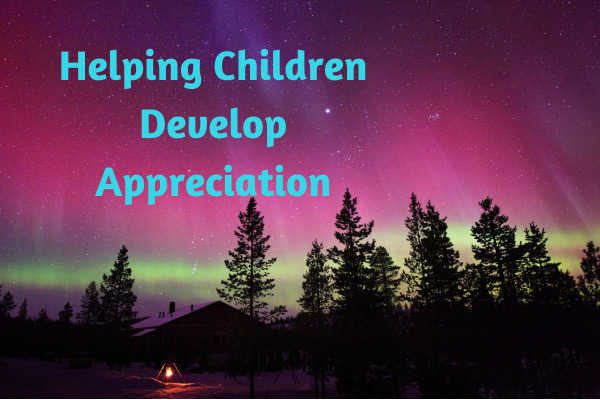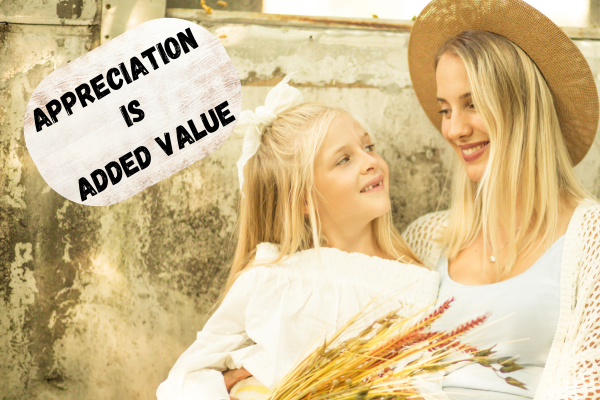
Gratitude: The Glue That Strengthens Family Values and Vision
In the fast pace of family life—school runs, work stress, and endless to-do lists—it’s easy to overlook a powerful, transformative force: gratitude. When intentionally practiced, gratitude becomes more than a momentary feeling; it becomes the glue that strengthens your family’s values and vision. It aligns your family with a shared purpose, deepens love, and fosters unity. Let’s explore how gratitude can reinforce the core of your family life.
The Power of Gratitude in Family Life
Gratitude is about noticing, valuing, and acknowledging what’s good. It shifts focus from what’s missing to what’s present, from frustration to appreciation. For families, this simple shift can create a profound impact.
When families practice gratitude intentionally, it transforms the home environment into a place where each person feels seen, valued, and connected to something greater—your shared purpose as a family.
Here’s how gratitude aligns with and strengthens key family values:
1. Gratitude Strengthens Unity
Family unity isn’t about always agreeing; it’s about staying connected through life’s ups and downs. Gratitude encourages family members to recognize each other’s efforts, big and small.
-
-
- “Thank you for helping your sibling with homework.”
- “I appreciate you listening to me when I was stressed.”
-
When family members express gratitude, they are reminded that they are a team, working toward common goals. Gratitude melts resentment and fosters harmony, even during challenges. Over time, the habit of gratitude unifies the family, creating a strong sense of “us.”
Action Tip: Start a gratitude jar. Family members can drop notes of thanks into the jar daily or weekly. Read them together at the end of the week to celebrate your unity.
2. Gratitude Deepens Love and Respect
At its core, love flourishes when people feel valued and acknowledged. Gratitude is an active form of love; it says, “I see you, and I appreciate you.”
When parents express gratitude to each other—“Thank you for making dinner tonight” or “I appreciate how hard you work for our family”—it sets a tone of respect that children naturally emulate. Gratitude shifts family dynamics from expectation to appreciation.
Children, too, feel more loved when their contributions are noticed. A simple, “Thank you for setting the table” can light up their day and teach them that small acts matter.
Action Tip: Model gratitude out loud. Thank each other openly so that children learn love is built on acknowledgment and respect.
3. Gratitude Clarifies Your Family Vision
Every family has dreams and goals, whether spoken or unspoken. Gratitude helps clarify these shared values by encouraging families to focus on what truly matters.
For example, if your family values helpfulness, expressing gratitude for acts of service—“Thank you for being so thoughtful and helping with the groceries”—reinforces that value. Gratitude becomes a spotlight that highlights your family’s priorities.
When parents focus on gratitude for shared experiences (“I’m so grateful for our time together this weekend”) rather than material achievements, it teaches children that family purpose is found in connection, not possessions.
Action Tip: Have a weekly family “gratitude circle” where each person shares one thing they’re grateful for that reflects your family’s core values—like kindness, teamwork, or honesty.
4. Gratitude Builds Resilience in Pursuit of Shared Goals
Every family faces challenges—financial stress, disagreements, or unexpected struggles. Gratitude doesn’t erase these problems, but it provides perspective. It reminds family members to acknowledge what is going well, even in hard times.
For example:
-
-
- “This week was tough, but I’m grateful we found time to be together.”
- “I appreciate how we handled that challenge as a family.”
-
This practice of gratitude teaches children resilience: the ability to see silver linings while working toward family goals. It instills hope and strengthens your collective vision, showing that together, you can overcome anything.
Action Tip: When challenges arise, ask: What is one thing we’re grateful for in this moment? This question can anchor your family in gratitude and optimism.
5. Gratitude Aligns Families with Purpose
Every family thrives when they know why they are a family—what their shared purpose is. Gratitude creates an opportunity to pause and reflect on that purpose.
Consider this:
-
-
- If your family vision is to live simply, gratitude helps you appreciate non-material joys like quality time and connection.
- If your vision is to serve others, gratitude for the opportunity to give back reinforces your commitment to that purpose.
-
Gratitude reminds families that the vision isn’t about perfection; it’s about appreciating the journey and growing together.
Action Tip: Write a family mission statement. Include a commitment to practicing gratitude as a family, and revisit it periodically to celebrate your shared growth.
A Reflection to Begin
Here are a few questions to reflect on as you start aligning gratitude with your family values and vision:
-
-
- How often do we express gratitude as a family?
- What are the core values we want to emphasize in our home? How can gratitude reinforce these?
- How does practicing gratitude help us appreciate what we have while still striving for our goals?
-

I’ve created a reflection journal designed for parents like you to guide this practice. It’s a space to celebrate your efforts, reflect on growth, and set intentions for the new year. By nurturing yourself, you create a ripple effect of gratitude in your home.
A Journal for Parents to Reflect on 2024 and Look Forward to 2025
This journal is divided into 12 areas of reflection, each centered around gratitude.
You’ll explore key aspects of your life—your health, family, personal growth, and cherished traditions—to uncover the moments and milestones that made this year meaningful.
You can get yours today. CLICK HERE TO LEARN MORE
Joe is a husband, father, grandfather, author, speaker, educator, course creator, and parent/family coach.
He helps parents develop unity, find clarity, communicate, and develop consistency in their parenting with the Four C’s of Successful Families. You can find his work on social media.
In addition, the Four C’s newsletter is enjoyed by many as it encourages parents to self-care, build their relationships with their partners, and raise their children.
And he loves to golf!








